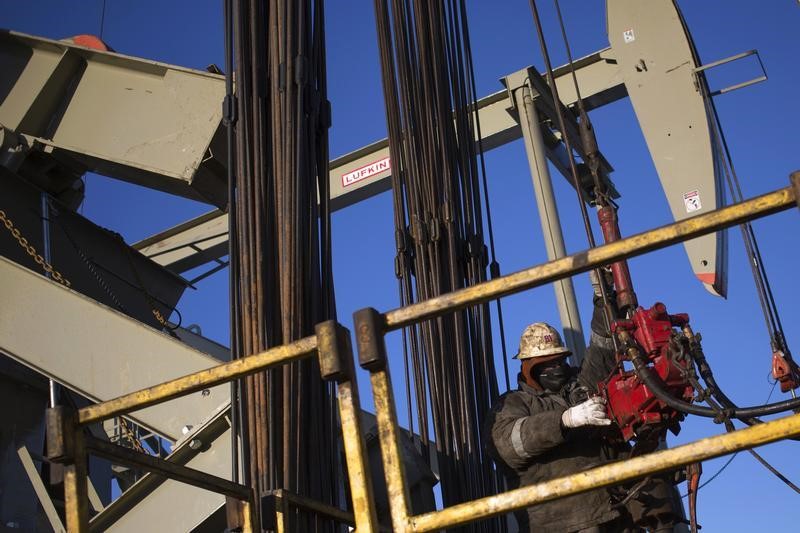Could the relief rally in oil prices extend? JPMorgan answers
Investing.xom -- After weeks of volatility, crude prices have bounced back by over $5 per barrel from recent lows, though they remain down $8 per barrel from levels a month ago.
The key question now is whether this rally will extend or fade. Analysts at J.P. Morgan are cautiously optimistic, pointing to several factors that could sustain the recovery in the near term.
J.P. Morgan had earlier flagged that the market was stretched on the short side, with risk/reward dynamics favoring a price rebound.
That call proved timely, as prices have surged over $5 per barrel since then.
Following discussions with J.P. Morgan’s oil traders, the analysts now see more potential for upward movement, highlighting several supportive market dynamics.
U.S. crude inventories, particularly at the Cushing storage hub, are rapidly tightening, with stocks potentially nearing minimum operating levels. This supply constraint could keep the market supported, preventing prices from falling too far.
Additionally, ongoing disruptions in Libyan production, which many had expected to resolve quickly, are dragging on longer than anticipated.
This prolonged absence of Libyan crude is adding further strain to the global supply picture.
Beyond supply disruptions, new refining capacity coming online could bolster demand for crude, further tightening the market.
In addition, current low prices may start to weigh on future production growth, particularly from non-OPEC producers, whose plans could be scaled back in a lower price environment.
Geopolitical risks also remain in play, with tensions in Ukraine, Israel and Hezbollah and the upcoming U.S. elections, all contributing to a volatile backdrop that could easily push prices higher.
While none of these factors alone would be enough to fully reverse the broader bearish sentiment, collectively, they create a scenario where oil prices could normalize at higher levels.
J.P. Morgan adds that the recent selloff in oil prices was likely driven by market anticipation of lower prices in 2025, especially given concerns of a potential supply surplus.
However, the analysts believes the market has overreacted, with Brent crude currently trading around $10 per barrel below its fair value of $82 per barrel.
Global crude inventories, the brokerage notes, are at their lowest levels since 2017, currently 4.42 billion barrels, significantly below last year’s levels when Brent was trading closer to $92 per barrel.
This disconnect suggests that the market may be underestimating current supply tightness, offering room for further price recovery.
Despite the near-term bullish signals, the brokerage recognizes the longer-term uncertainties. J.P. Morgan’s forecasts for 2025 still point to a significant oversupply, potentially driving Brent prices below $70 per barrel by year-end.
That said, the analysts acknowledge that these forecasts could be too bearish by as much as 400,000 barrels per day, meaning the supply glut might not be as severe as initially feared.
Going forward, J.P. Morgan’s preliminary analysis suggests global demand could rise by about 1 million barrels per day in 2026, with non-OPEC supply growth almost matching that at 900,000 barrels per day.
Source: Investing.com
